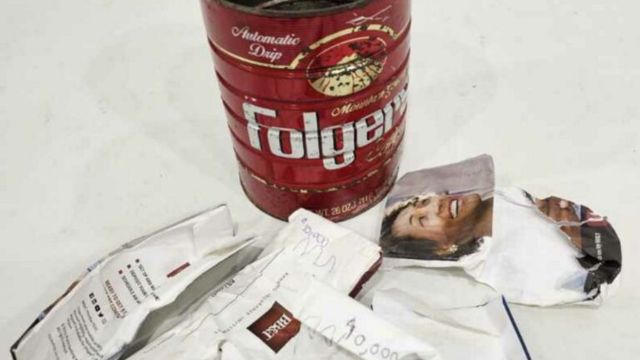California is home to popular tourist destinations like Hollywood, Silicon Valley, Disneyland, and the famous Golden Gate Bridge, but the state also has a more dangerous and sinister side: drug trafficking. Fresno has gained the unpleasant distinction of being the drug trafficking capital of California, according to a new report from the Drug Enforcement Administration (DEA).
The Part Drug Trafficking Plays in Fresno
With a population of more than 500,000, Fresno is the fifth-largest city in California and is situated in the Central Valley, an area of great fertility that supplies a huge amount of the country’s fruits and vegetables. But beneath the surface of this agricultural paradise lies a darker reality: it’s home base to some of the most powerful and ruthless drug trafficking gangs in the country.
According to the DEA, Fresno is a significant hub for the distribution of several illegal substances, such as synthetic narcotics, methamphetamine, heroin, cocaine, fentanyl, and marijuana. The city’s location at the intersection of multiple main highways makes it easier for narcotics to be transported to and from other sections of the state and the country. In addition, the large and varied population of Fresno, which includes members of many racial and criminal groups, is essential to the continued existence of the drug trade.
According to DEA estimates, there are more than 100 gangs in Fresno, with a membership of over 10,000 people. Among them are prominent groups such as the Asian Boyz, Nuestra Familia, Mexican Mafia, Sureños, Norteños, and the Fresno Bulldogs, who are involved in various criminal operations ranging from drug trafficking to human trafficking.
Drug trafficking’s effects on Fresno
Drug trafficking in Fresno has disastrous effects that have a deep impact on the city and its citizens. The Fresno County Sheriff’s Office reports that drug-related offenses are connected to over half of the county’s homicides, shootings, and violent assaults. According to the Fresno Police Department, drug overdoses are the leading cause of death in the city for people between the ages of 15 and 64. 624 drug overdose deaths occurred in Fresno in 2020 alone, a 70% increase over 2023.
Drug trafficking has a major negative impact on the city’s economy and quality of life in addition to the human cost. With more than 25% of its citizens living below the federal poverty line, Fresno has one of the highest rates of poverty in the state. In addition to high rates of homelessness, unemployment, and illiteracy, the drug trade also undermines respectable companies and sectors like healthcare, education, and agriculture.
Initiatives in Fresno to Fight Drug Trafficking
Fresno officials are actively fighting drug trafficking because they understand how serious a problem it is. In order to investigate and bring charges against drug trafficking groups, the DEA keeps a field office in Fresno and works with federal, state, and local agencies. The Multi-Agency Gang Enforcement Consortium (MAGEC), a specialist organization that targets crimes and violence associated to gangs, is run by the Fresno County Sheriff’s Office. The Fresno Police Department’s Narcotics Unit also concentrates on low-level drug users and dealers on the streets.
In order to prevent and lessen drug usage and addiction, law enforcement authorities collaborate with neighborhood associations and organizations. Programs such as the Fresno Meth Task Force, Fresno County Drug Court, Fresno County Opioid Safety Coalition, and Fresno County Prevention Collaborative provide drug users and their families with information, awareness, treatment, and rehabilitation programs.
The Future of Fresno Drug Trafficking
Fresno’s drug trafficking problem is complex and dynamic, necessitating a thorough and well-coordinated response. Even if the government is dedicated to stopping the drug trade and its effects, there are many obstacles and constraints in their way. Drug trafficking groups are always changing and adapting, using new tools, strategies, and paths to avoid being discovered and prosecuted. The problem is made more difficult by the ongoing demand for drugs, which is driven by a number of social, economic, and psychological variables.
The future of drug trafficking in Fresno depends on the combined efforts and collaboration of all parties involved, including the police, courts, companies, community organizations, media, and locals. By working together, they can make Fresno a safer and healthier place to visit, live, and work.




